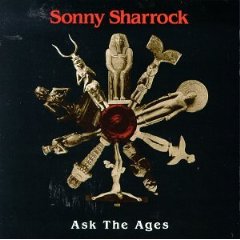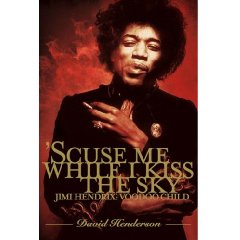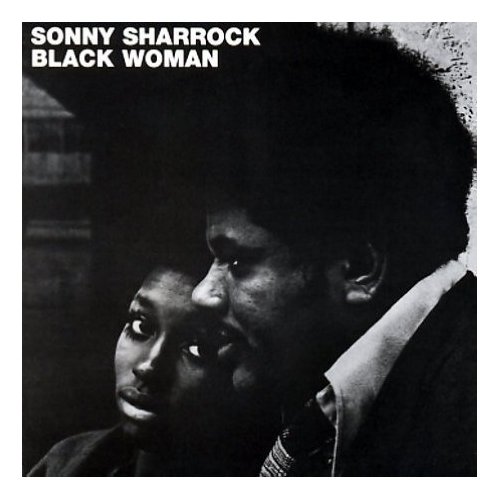Carl Hancock Rux, Trey Ellis, Vernon Reid and Jimi Hendrix
 Someone handed me a hardback copy of Carl Hancock Rux, his book, Asphalt. I could feel by the way it came to me that it was there not because of “hey you really need to read this…” It was handed to me because this person frequently gets freebies based on the marketing motion toward “creating buzz” and pushing things like books into optioning deals for the promise of making movies.
Someone handed me a hardback copy of Carl Hancock Rux, his book, Asphalt. I could feel by the way it came to me that it was there not because of “hey you really need to read this…” It was handed to me because this person frequently gets freebies based on the marketing motion toward “creating buzz” and pushing things like books into optioning deals for the promise of making movies.
It should be no surprise that when Carl Hancock Rux gets the news that some “nobody” with a lowly Blog, using the words “Black” and “white” in public, is talking shit about his novel, the idea that this “nobody” would have any kind of connections to people who option books for movies would be the last thing on his mind. I look forward to reading in an anecdote from the Carl Hancock Rux journal (?) about him using the word the “lollipop” on a person that he knows can get him past his current entry-level position at Epic records after said person critiques his work. Since he just knew he was writing to a “nobody”—and he knows this “nobody” is easily dislikeable by the properly assimilated people of all skin colors living in good state of Texas—he would feel safe to be as ironically warlike as possible. And I’m saying that his warlike behavior is of the same irony as a self-described feminist being hopelessly patriarchal. It should not have been so easy to find himself and so many of his devoted followers so damn violent. With “friends” like that…
Anyway:
This is what happened about a week ago: I did two things in the general direction of Carl Hancock Rux:
- One. I grouped him in with Saul Williams and Michael Franti and I called that group the ‘chocolate ilk.’
- Two. I said that the paragraphs in Asphalt were ‘needlessly dense.’After doing those two things, you can read my carefully preserved adventure with about three Rux “supporters” in a Web-2.0-drive-by and Rux himself finishing me off in “Saul Williams Has to Pay His Gas Bill.” Rux and his posse left comments that are deeply invested in warlike foundations that make almost every American citizen mentally prepared for training in the armed forces. I was expecting something closer to a Buddhist-American style of condescending pity for my “irresponsible” behavior. Instead I got blacktop shit you yell out during a basketball game from people I just know can’t really play basketball. All I asked was that they read my work with intent to expose the details of what they read instead of skimming and dropping blankets on it. When someone with connections in Hollywood gets a free book to read, Rux and affiliates are asking that someone to read not skim, right? Karma? Some people are graceful, thoughtful and fastidious. Such people are really, really awesome.
I read a few lines in Asphalt. Poetry is my bias so I got close to the words. Sometimes the author does want you to get that close. Sometimes the author just wants you to be impressed that they have a book published by the “proper authorities” and you just shut the f’ up O’Reilly-factor style. But I get close to the words. You can read some of them at carlhancockrux.com. Here is a move that jumps out at me:
A rapturous wind wrestled with him…
Here is more alliteration:
…a boy crossing pernicious pavement channels…
And another:
…straight and steady steps of celerity…
One more:
His fertile flesh wrapped itself around a skeletal frame…
 When you read these lines in isolation, do you find them appealing? This question is not a matter of warlike absolutes. No Greek dialectics and persuasions here. There is no right or wrong answer to my question. This is a question of aesthetics. This is the reason why Vernon Reid is in the title of this Blog post because his name reminds me of questions for a certain kind of aesthetic—what Trey Ellis called almost 20 years ago, “The New Black Aesthetic.” But before we get to what I think is the fun part, let’s dabble with some old Negro spirituals that have been sung since the founding of Monticello.
When you read these lines in isolation, do you find them appealing? This question is not a matter of warlike absolutes. No Greek dialectics and persuasions here. There is no right or wrong answer to my question. This is a question of aesthetics. This is the reason why Vernon Reid is in the title of this Blog post because his name reminds me of questions for a certain kind of aesthetic—what Trey Ellis called almost 20 years ago, “The New Black Aesthetic.” But before we get to what I think is the fun part, let’s dabble with some old Negro spirituals that have been sung since the founding of Monticello.
Let’s sing that song called “I’m jealous of Carl Hancock Rux because he uses long words like celerity and I can’t. Oh, Lawd.” When you download this song and play in your iPod, of course you can’t hear where my thang is coming from! Of course I would say that Rux’s prose is too dense because I can’t read long words… Right? (Affirmative?) The irony comes when the chocolate ilk of fine intellectuals skim over the content of my next paragraph thinking they know what they are reading but showing me little comprehension because they know it’s a waste. Right? It should be so easy:
The writer Bryan Wilhite would not use the word “celerity” to describe anything of human motion because the probability that the reader will mistake the word “celerity” for the word “celery” is very high in Bryan’s little world of obscure loneliness. It does not matter how large the vocabulary of the reader may be. It matters very little that there is a common morpheme between the words “celerity” and “acceleration.” Mistakes still can be made—“celebrity”? And the risk is too high based on my inability to understand how these moves help tell the author’s story.
Because Bryan Wilhite would not make literary moves like these does not imply that other writers should not dance like this—assuming such an implication is based on cultural baggage that I can’t carry right now. Simultaneously, when writers actually do bust moves like these, it should not mean that I must not talk shit about them. I do this fully expecting to be treated the same way. Where do you think the dozens come from? The dozens means there are factors of 12 different ways to talk shit about something—not one way, featuring the word “bullshit.” Where did all of that braggadocio in hip-hop come from? Why does bell hooks write about “critiquing” so much? Am I going to wait for an invitation from Brown University for a “writers’ workshop” to start talking shit about other writers? Do I need to pass a course in “proper manners” and etiquette, get my certificate in “polite discourse” before I start talking shit about other writers? Who will be in charge of the class? In case you are taking writing classes at Dakota State University, you might read this:
Style is the way the writer uses language. The longer the work the less important language becomes. Above all, the writer’s work must tell a story. The writer should not be more concerned with the words used than with the story the writer is trying to tell. Don’t be a fanatic about words. The language is less important than character and plot. However, a combination of a good story and good English will be a delight to read.
Mistakes in English amount to author intrusion and detract greatly from the story being told.
The most effective writing uses the active voice. Shorter, concrete words tend to be stronger. Long words tend to be abstract. Avoid wordiness. Write in a concise, precise, concrete, and specific manner. However, recognize that English has an enormous number of words in it, and the words can have very precise meanings. Sometimes no other word will do. And be specific. Don’t mention just a tree; say what kind of tree it was.
The choice of words can help set the tone of the story.
Beginning writers may get defensive and touchy about their style. When offered constructive (or maybe destructive) criticism about their style, beginning writers may tend to say something like, “Well, that’s just my style.” The implication being that the reader must like whatever style the writer chooses to use. But that is backwards. It is up to the writer to please the reader, not the other way around.
The way my background in free-association works a line like “straight and steady steps of celerity” invokes green celery stalks walking through yet another “post-apocalyptic” landscape. Sorry for the “destructive” criticism. I was attacked by a phalanx of pointy green lettuce as a child. It scarred me. Carl and his gang can sigh a sigh of relief that I am “the only one in the world” who thinks of stuff like this… Right? …worse is my very, very strong suspicion that Carl is trying to let me know that he is aware of the existence of the word “celerity” instead of letting me know that the entire English language is garbage heap of stolen words obtained through violent conquest and that, as a Black writer, he can both use and escape the English language simultaneously…
You can see this same desire in Carl in the comment he left on this Blog when he explodes with a myriad of details about African history that I am supposed to assume that he does not know about… that behavior reminds me of a young Wynton Marsalis doing parlor tricks with his trumpet—like how long he can a hold a note while cycling breaths through his nose… There were reaso**ns why Miles Davis told Wynton to get the f’ off the stage… and not all of them has to do Miles abandoning his first wife and children and Miles being on coke… but now “it does not matter” because Miles is dead and the stage is owned by Ticketmaster. Right?
But let’s not talk about Miles Davis (again). Let’s talk about Vernon Reid and Jimi Hendrix. Here in the rasx() context, Carl Hancock Rux, his choice of English words, is governed by the same aesthetic core that makes Vernon Reid pick up the guitar. I have never said that Carl Hancock Rux cannot write just like I have never said that Vernon Reid is not a musician. But… But… My ear for music comes from the rhythm-based world of Jimi Hendrix. So too comes my ear for English words… Let’s not get cartoon simple and assume one is accusing one of not “being black” (or one never listening to Jimi Hendrix)—I took great care to write about “Basic Black”—so let’s move within the Blackness and really see how big it is…
 You see… Jimi Hendrix is a great, rhythm guitarist. He is so great that he taught me my definition of what jamming is… Jamming is about having multiple responsibilities—being responsible for the self and responsible for the group. The group interoperates in rhythmic structures—the self operates in the solo—Jimi Hendrix is arguably the inventor of the guitar solo—especially the eleven-minute solo. But he never got so lost in the solo that he failed to show responsibility to the group rhythm by jamming the enormity of his solo into the precise times of the rhythm—even when he was not-necessarily stoned out of his mind… this “obedience” to rhythm, this ability to move effortlessly from a cosmic scale to a subatomic one comes from Jimi’s rhythm guitar background—all those tough years on the chitlin’ circuit being oppressed, ignored and secretly admired by his fellow Black musicians and front men… There is a great scene in the David Henderson biography of Jimi Hendrix, ’Scuse Me While I Kiss the Sky: Jimi Hendrix: Voodoo Child, with Little Richard lecturing Hendrix for hours about who was the pretty one… “I’m the pretty one!” squealed Little Richard.
You see… Jimi Hendrix is a great, rhythm guitarist. He is so great that he taught me my definition of what jamming is… Jamming is about having multiple responsibilities—being responsible for the self and responsible for the group. The group interoperates in rhythmic structures—the self operates in the solo—Jimi Hendrix is arguably the inventor of the guitar solo—especially the eleven-minute solo. But he never got so lost in the solo that he failed to show responsibility to the group rhythm by jamming the enormity of his solo into the precise times of the rhythm—even when he was not-necessarily stoned out of his mind… this “obedience” to rhythm, this ability to move effortlessly from a cosmic scale to a subatomic one comes from Jimi’s rhythm guitar background—all those tough years on the chitlin’ circuit being oppressed, ignored and secretly admired by his fellow Black musicians and front men… There is a great scene in the David Henderson biography of Jimi Hendrix, ’Scuse Me While I Kiss the Sky: Jimi Hendrix: Voodoo Child, with Little Richard lecturing Hendrix for hours about who was the pretty one… “I’m the pretty one!” squealed Little Richard.
For track, after track, after track Vernon Reid has a different approach to the guitar. Vernon has enormous down pat. I am unable to locate my understanding of jamming and rhythm in much of his work. This does not mean that Vernon Reid cannot hear three time signatures in his head at once—I just fail to see this hearing express itself in the body of work of which I am aware. This does not mean that I am attacking Vernon’s ability to play music—he just can’t play the way I understand what playing is… Like Carl Hancock Rux, Vernon explodes towering structures that seem to go up and up but never get down. Here is Trey Ellis writing about Vernon Reid:
Vernon Reid, then 26, shook the sweat from his short dreads arcing out from his forehead before grinding his third encore solo into a psychotically distorted explosion. A black lead-guitarist playing funked-out heavy metal. Well I’ll be damned, I remember thinking.
 I do admire the writing of Trey Ellis and I appreciate his honesty about being amazed that a Black man can play guitar that way. But my familiarity with cats like Sonny Sharrock or Blast Murray prevents me from celebrating the novelty of the moment. This “holding back” from the celebration of new-found neo-blackness on my part makes me look like a “hater” to the misinformed. Sorry about that. But Black is huge, baby and I have my children to support emotionally as they learn something new. Once you get grown—or walking around acting like you are grown—, baby, you are done with the kid gloves… I can’t pretend to be shocked with you about how big Black is… and I can’t be silent all the time while you are conspicuously amazed… As far as I’m concerned, Jimi Hendrix is Rock N’ Roll as amplified Blues with exquisite tone paintings from the studio that I know Brian Eno weeps for… Prince only played like Hendrix in obscure night clubs, in surprise performances, or maybe one night on a tour… there’s a reason for this that is both respectful of Hendrix and prideful of Prince.
I do admire the writing of Trey Ellis and I appreciate his honesty about being amazed that a Black man can play guitar that way. But my familiarity with cats like Sonny Sharrock or Blast Murray prevents me from celebrating the novelty of the moment. This “holding back” from the celebration of new-found neo-blackness on my part makes me look like a “hater” to the misinformed. Sorry about that. But Black is huge, baby and I have my children to support emotionally as they learn something new. Once you get grown—or walking around acting like you are grown—, baby, you are done with the kid gloves… I can’t pretend to be shocked with you about how big Black is… and I can’t be silent all the time while you are conspicuously amazed… As far as I’m concerned, Jimi Hendrix is Rock N’ Roll as amplified Blues with exquisite tone paintings from the studio that I know Brian Eno weeps for… Prince only played like Hendrix in obscure night clubs, in surprise performances, or maybe one night on a tour… there’s a reason for this that is both respectful of Hendrix and prideful of Prince.
And, Mr. Rux, Prince knows that all the critics love you in New York…
I can easily see a critic in praise of both Rux and Reid—that these artists represent an “evolution” along the timeline. But the very concepts of “evolution” and time lines are Western instruments mistaken for universal ways to be in the universe. It’s sad to see black people using these instruments based on the assumption that these are only tools available… And this is why I say that Carl Hancock Rux, in spite of his myriad of African details, is deeply unconcerned with where my thang comes from… Scholars of European roots can write very important African histories… I would not trade Zaslavsky, Bernal and Blackmon for Skip Gates. But when it comes to knowing the esoteric symbolism of rhythm—how musical rhythm is a symbol of the renewing reliability, precision and pulsating fidelity of communal people—this just can’t be an intellectual exercise lost in the head. This must flow through the whole body. When it’s in you, it got to come out… and you feel so good, you be boogie-in just the same, O Lord… We gots to shake that thang… Incarnation is eternal… mere demonstrations are temporal… Humans cannot function optimally within systems ultimately based on self-alienation… humans of African descent in particular and the indigenous in general know non-self-alienating cultural systems as ancient heritage… the white world, overpopulated by people of all skin colors, would dismiss these cultural systems as “utopia” and/or “myopia” and then move on through the timeline keeping it real…
 When I write words for fiction, my concern for the rhythm, the sound, the syntax, the semantics—and the ‘meta’ data, including the fact that the reader is reading the page itself must be addressed by me… Kurt Vonnegut and Trey Ellis play around with these tasks in very humorous ways… (I am the least concerned with plot (more timeline shit)—which is one reason of many why I have not been published in the “mainstream.”) There is a great move in Milan Kundera’s The Unbearable Lightness of Being when he stops you from “getting lost” in the story for a moment to tell you that smoke is wafting over the letters on the pages then he slides right back into the story—that’s jamming to me… I likes that shit.
When I write words for fiction, my concern for the rhythm, the sound, the syntax, the semantics—and the ‘meta’ data, including the fact that the reader is reading the page itself must be addressed by me… Kurt Vonnegut and Trey Ellis play around with these tasks in very humorous ways… (I am the least concerned with plot (more timeline shit)—which is one reason of many why I have not been published in the “mainstream.”) There is a great move in Milan Kundera’s The Unbearable Lightness of Being when he stops you from “getting lost” in the story for a moment to tell you that smoke is wafting over the letters on the pages then he slides right back into the story—that’s jamming to me… I likes that shit.
This Hollywood idea of making the viewer forget that they are watching a movie can sound very admirable but this power often used to control, contain and pacify people rather than empower people… This Hollywood idea (among many others) influences writers of fiction. Writers of fiction—especially writers who “question” a higher power in the universe—should not indulge in more irony and use the convention of the god-like narrative voice without question. So, whenever a “new,” “fresh,” literary voice comes out in the world of fiction, I look for that god-like narrative voice in their work for an easy way out of reading yet another book. I understand that millions of you like that shit so just go ’head and be millions of mufukkas likin’ that shit.
 When I saw Alice Walker read in person years ago, I noticed she stood pigeon toed—this supposed “petty” and “superficial” observation of mine made me realize that her prose also stands pigeon toed (compared to Toni Morrison—not mine)… You might feel uncomfortable with a ‘misunderstanding’ for the artist’s work until you become aware of these “silly” details like posture and whether they use words like “pernicious” in casual conversation such that spittle comes out of their mouth in an awkward, goofy-ass, posh-accent lisp… Here in my squalid little world of savagery everything to the smallest detail informs the work of the so-called “artist.” The natives want to know whether the foreigners in the pith helmets bearing chocolates have bowel movements…
When I saw Alice Walker read in person years ago, I noticed she stood pigeon toed—this supposed “petty” and “superficial” observation of mine made me realize that her prose also stands pigeon toed (compared to Toni Morrison—not mine)… You might feel uncomfortable with a ‘misunderstanding’ for the artist’s work until you become aware of these “silly” details like posture and whether they use words like “pernicious” in casual conversation such that spittle comes out of their mouth in an awkward, goofy-ass, posh-accent lisp… Here in my squalid little world of savagery everything to the smallest detail informs the work of the so-called “artist.” The natives want to know whether the foreigners in the pith helmets bearing chocolates have bowel movements…
Me knowing something as insignificant that carlhancockrux.com runs on an Open Source content management system called “exponent” and that he is listing the email addresses of his management and agencies in the clear at the bottom of every page of his Web site tells me just a little bit more about the artist… When Carl Hancock Rux makes the decision to sing for a record label, he is using the same decision-making “mechanism” that can write the words “equestrian swagger” on a page and list those email addresses on another page—and he stands back and says, “That’s cool. I like that.”—and the critics stand back and say, “…brilliantly colorful and seriously inclusive.”
You see, Carl, let’s have a non-conversation about another small artistic moment in Asphalt. Whenever you compare the attributes of a black male to a horse, your work will likely be called “brilliantly colorful and seriously inclusive”… You got to watch that word “colorful” and how it is used in the “mainstream” to describe work done by blacks… this is why I would not use the words “equestrian swagger” to describe any of the motions of my Black characters. It is just too easy for the non-conscious racial programming of the “white audience” to kick in and see you as “inclusive”… In my unpublished, “bullshit” fiction manuscript, I compared the fine white facial hairs on a female character’s light skin to the mycelium of a fungus knowing quite well that a move like that would be repulsive to the Bohemian editor and more so for the literary agent. Why would I do something “crazy” like that? Don’t I want to be published by the “mainstream”? Yes I do. But I’m the guy who writes the ‘fungus’ stuff. A different guy writes the “equestrian” stuff. Here’s a great line from David Byrne:
How many people do you think I am to pretend I am somebody else?
Not that many long words in it… Let me try to think of a line with long words in it that I actually like…
No, I’m serious about this… not sadistic like some male living stereotype from a poor girl’s childhood… I wrote a whole series called “Lines in the rasx context” you know…
Oh, you don’t read my work?
People don’t read long pieces on the Internet?
No printer? …waste paper?
…busy?
Yeah… busy… Hey, Carl, I like the first and last sentences in Kesey’s One Flew Over the Cuckoo’s Nest:
They’re out there.
…
I been away a long time.
 I dig almost every economical sentence Octavia Butler puts down… I’m going to have to check her work for S.A.T. vocabulary words… (I can just see Phil Hartman saying “jejune” with such relish…) Anyway Mr. Rux… Importantly, I am well aware how insignificant my aesthetic and opinion are to you and your many, many fans and well wishers of the 2008–2009 academic year. There is no need for them to remind me of this in various violent sweeping generalizations—generalizations like “this is bullshit.” Only young people have the excuse of inexperience to be fascinated with letting “losers” like me know just how much they don’t give a f’ about me and my opinions… For you dudes over thirty, I fully expect you to be a bit more precise in your countering of me (or agreeing with me)… or just be silent like Nixon’s majority… most of us have to go to work in the morning so there’s not much aesthetics contemplation time…
I dig almost every economical sentence Octavia Butler puts down… I’m going to have to check her work for S.A.T. vocabulary words… (I can just see Phil Hartman saying “jejune” with such relish…) Anyway Mr. Rux… Importantly, I am well aware how insignificant my aesthetic and opinion are to you and your many, many fans and well wishers of the 2008–2009 academic year. There is no need for them to remind me of this in various violent sweeping generalizations—generalizations like “this is bullshit.” Only young people have the excuse of inexperience to be fascinated with letting “losers” like me know just how much they don’t give a f’ about me and my opinions… For you dudes over thirty, I fully expect you to be a bit more precise in your countering of me (or agreeing with me)… or just be silent like Nixon’s majority… most of us have to go to work in the morning so there’s not much aesthetics contemplation time…
Feel free to leave comments about Carl Hancock Rux in particular or the issues presented around him general… I would not make this offer without my optimism that I will actually learn something new… So far 0 comments… remember that scene in The Simpsons when the nerds press the button on the answering machine, “You have zero messages…”? …and all the nerds go, “Whew”…another sigh of relief…
One, pristine, hardback copy of Asphalt was donated to the Inglewood Library. My youngest son dropped it off with me along with back issues of MSDN Magazine a few Thursdays ago… A whole generation of Inglewood youth has an opportunity to read Asphalt without me and my funky opinions. They’re out there.
I been away a long time.

Comments
Lazar, 2008-08-26 20:29:56
Small little details that should inform the writer of this missive about himself and his squallid little world of savegery: the native uses language like braggadoccio, renewing reliability, pulsating fidelity of communal people, myopia, meta data and mycelium yet worries the masses will confuse celerity with celery? Harold Cruse said it best: "the present day conflict within the Negro ehtnic group, between integrationist and seperatists tendencies, has its origins in the historical arguments between personalities..."
rasx(), 2008-08-27 18:06:27
The answer to your question is yes.
The flaws in your question are these assumptions:
I preach that writers should never use "long words"---this is not correct. Use your browser to search for the term "free association" above...
I share your concept of "the masses." I do not.
I share your ability to write the words "Negro [ethnic] group" and expect to others to feel corrected by my desire to correct others. Here in the rasx() context there is no such thing as a "Negro ethnic group"---just ask your light brown pal with the floppy hat standing next to you...